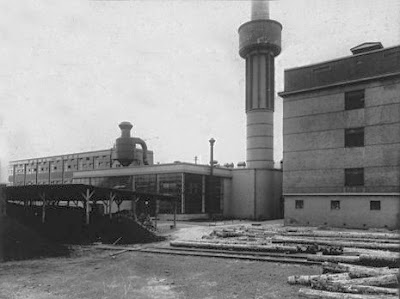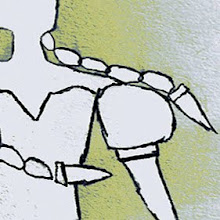Designed in around 1910, the Fagus factory in Alfeld-an-der-Leine (Germany) constitutes an architectural complex which foreshadows the modernist movement in architecture.
Fagus factory, unidentified photographer (source)
Commissioned by owner Carl Benscheidt, who wanted a radical structure to express the company's break from the past, the factory was designed by Walter Gropius, the famous German architect and founder of the Bauhaus School.
The Fagus factory was constructed between 1911 and 1913, with additions and interiors completed in 1925.
Fagus factory, glass facade, unidentified photographer (source)
« For the first time a complete facade is conceived in glass.»
— Nikolaus Pevsner, Pioneers of Modern Design (1949)
The building that had the greater influence on the design of Fagus was AEG’s Turbine factory, an influential and well-known example of German industrial architecture, designed by Peter Behrens in 1909.
Fagus factory drawing, perspective from southwest, graphite and white wash on composition board (source)
Carl Benscheidt (1858–1947) founded the Fagus company in 1910. He had started by working for Arnold Rikkli, who practised naturopathic medicine, and it was there that he learned about orthopedic shoe lasts (which were quite rare at that time).
Shoeforms pattern room, photo by Albert Renger-Patzsch (1928)
photo by Albert Renger-Patzsch
Fagus factory interior, unidentified photographer
Fagus factory, unidentified photographer
View from north, photo by Edmund Lill
View from east
View from south
View from west
View from north
photo by Albert Renger-Patzsch
Photos found here: Harvard art museums
All 10 buildings constituting the Fagus factory have been conserved in their entirety, in their initial ground plans and architectural forms. The complex is still operational today.



.jpg)

*.jpg)












